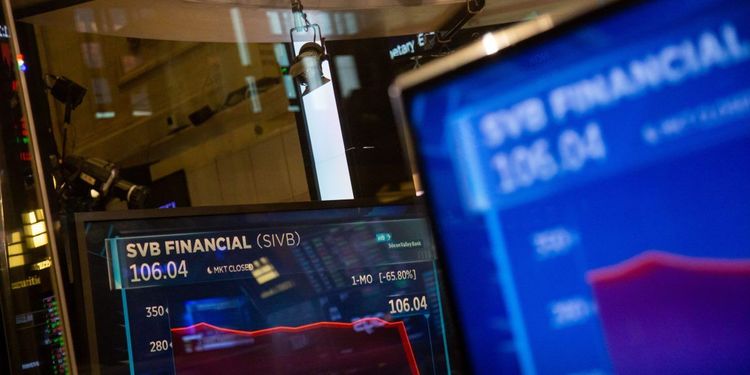
Financial regulators are unprepared for bank runs in the age of social media
Financial regulators are unprepared for bank runs in the age of social media
In many ways, Silicon Valley Bank’s implosion was a classic bank run. Economic conditions shift (skyrocketing interest rates to try to manage inflation in this case). Said bank’s assets decline in value. The bank takes significant losses. It worries about having sufficient liquidity and tries to raise capital. Word leaks out. Depositors panic. Everyone tries to withdraw their money at once. Chaos ensues.
PAID CONTENTHow Bain & Company helped AIA innovate a game-changing app
FROM BAIN & COMPANY
Except this time, one aspect was very, very different. The SVB panic is one of the first examples of a bank run in the era of social media. Did SVB make some bad decisions and investments? Yes. Was their communications strategy among the worst seen in decades? Very much so. But before the days of Twitter, would the floor have collapsed so quickly? Probably not.
A raft of bank regulations will likely come in response to the SVB crisis. That’s great, but regulators must take social media into account before it’s too late.
Before Thursday, Silicon Valley Bank was not a hot topic on social media. Google Analytics shows that on a scale of 1 to 100, from Mar. 5 to Mar. 8, social media interest in SVB was essentially zero. By the evening of Mar. 9, interest rose to 15. Roughly 20 hours later, it reached 100, the highest possible score. One analysis of the spike showed an 81,623% increase on social platforms. Once that happened, it was game over. Every SVB account holder, including us, reached the same conclusion: get your money out asap.
But what if the Federal Deposit Insurance Corporation (FDIC) had been made aware of the initial spike in social activity before it was too late? Whether it’s issuing guidance to calm depositors down, taking over SVB sooner, or beginning the auction process faster, advance knowledge could have only helped.
Social media platforms, such as Twitter, Instagram, Tik Tok, YouTube, Facebook, and LinkedIn, should be required to report any major spike in activity concerning banks and large financial institutions.
Executing this idea wouldn’t be that hard. Once online volatility about a bank increases by, say 15%, the platform automatically tells a designated contact at the FDIC about it. Machine learning could be used to distinguish between negative and positive sentiment.
Even if the platforms end up overreporting, I’d rather the FDIC know about an emerging problem that turns out to not be a major crisis than hope that their employees are proactively tracking a dozen different platforms on their own.
The social norms we hold today are radically different from those we held in 1929–and even in 2008. Most of us now do our banking online. We can transfer money, pay bills, deposit checks and perform almost every other function with the push of a button in a matter of seconds. Everyone now expects instant liquidity. So when that didn’t immediately happen at SVB, panic ensued.
That’s never going to change. The speed of the internet isn’t going to decline. Online financial services aren’t going to get less convenient. People are not going to become more patient. So the next time will be just as bad, if not worse. Unless we can get out ahead of it.
Financial regulation, as we’ve all seen, can be incredibly complex. This one part is not–and yet it could do more to prevent a crisis than many measures that are on the table.
Monitoring volatility on social media platforms isn’t cumbersome or costly. It shouldn’t require an extensive rulemaking process. It’s just common sense. In other words, regulators must recognize the world has changed–and change along with it.
Bradley Tusk is the founder and CEO of Tusk Ventures.
The opinions expressed in Fortune.com commentary pieces are solely the views of their authors and do not necessarily reflect the opinions and beliefs of Fortune.
Source : [Financial regulators are unprepared for bank runs in the age of social media](news.google.com/rss/articles/CBMihwFodHRwczovL2ZvcnR1bmUuY29tLzIwMjMvMDMvMTQvZmluYW5jaWFsLXJlZ3VsYXRvcnMtdW5wcmVwYXJlZC1iYW5rLXJ1bnMtYWdlLXNvY2lhbC1tZWRpYS1zaWxpY29uLXZhbGxleS1iYW5rLXN2Yi10ZWNoLXZjLWJyYWRsZXktdHVzay_SAYsBaHR0cHM6Ly9mb3J0dW5lLmNvbS8yMDIzLzAzLzE0L2ZpbmFuY2lhbC1yZWd1bGF0b3JzLXVucHJlcGFyZWQtYmFuay1ydW5zLWFnZS1zb2NpYWwtbWVkaWEtc2lsaWNvbi12YWxsZXktYmFuay1zdmItdGVjaC12Yy1icmFkbGV5LXR1c2svYW1wLw?oc=5) undefined - Fortune / March 15, 2023